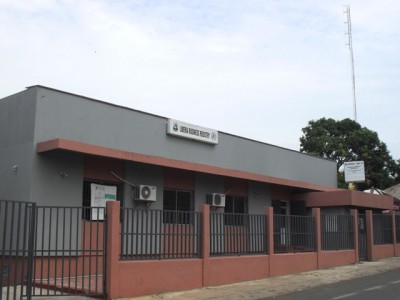Innovating for the People: How Africa is using Technology for Better Governance.
This post is the forth and last article in a four-part series on Africa: The Present Frontier.
On his first day in office, US President Barrack Obama signed the Memorandum on Transparency and Open Government start the process that led to the Data.gov we know today. Within 3 years, other governments had followed suit around the world with many attempting to do it and others getting past the hurdles to finally launch. The first one in Africa to start the process and deploy an open data portal was Kenya. Other countries are expected to follow suit in the coming months and years.

The Liberia Business Registry which provides an online platform for business registration. Image source: http://www.lbr.gov.lr/
The story of governance in Africa though punctuated by war, coups de etat and not-so-democratic elections is also full of stories of democratic progress and innovation. Technology is playing a role on the demand side of governance with citizens taking to technology platforms to amplify their opinions and demand better services from governments. It’s playing a big role on the supply side as well with governments adopting e-government and making progress along the path to open government and turning Africa into an attractive place to live in and do business.
The IFC in its Doing Business report for 2012 found that every single East African country had made at least one reform aimed at making them an attractive investment destination. Areas such as electronic submission of documents for businesses establishing a presence are important for governments in the East African Community. Sadly, despite the reforms, the 2012 Doing Business ranking show only 2 out of 5 of the EAC states improved their rankings with all the others dropping between 2 and 4 places from 2011. Rwanda remains the 3rd best country to do business on the continent after Mauritius and South Africa at its current 45th position in the rankings. Kenya, at 109, is ranked better than Nigeria, Brazil and India.
The improvements in the EAC have resulted in stronger legal institutions but maintained expensive regulatory processes. However, as these governments implement e-government initiatives and make progress along their respective roadmaps, the costs for businesses and individuals where interactions with government are concerned will reduce and play a role in improving the business environment in the region. This is key to creating employment, reducing poverty, improving the quality of life and growing a country’s GDP. Here are some examples of how countries in the region are using technology to serve citizens and protect the gains made in opening up the democratic space and improving the business environment.
- Kenya Revenue Authority’s (KRA) Portal. Interacting the revenue authority almost always meant a great deal of standing in line and loss of valuable man-hours lost. This created an environment for intermediaries and corruption to thrive resulting in the loss of millions of dollars in revenue every year. The authority implemented a series of measures to make customs, excise and value-added-tax processes convenient, less costly and more water tight through an online platform resulting in a level playing field for business and less citizens standing in line for days to get things done. It also put those pesky ‘brokers’ hanging around government offices offering to ‘help’ out of business.
- Tanzania Revenue Authority e-Filing and mPayments. In a move that created a new precedent in Government to Citizen (G2C) services in sub-Sahara Africa, the Tanzania tax authority implemented a mobile payments tax system which makes it unnecessary for citizens to visit their offices to pay taxes.
- Rwanda Mobile-enabled Driving license applications. In an effort to reduce the amount of time it takes to apply for a driving license in Rwanda, the government introduced a mobile-enabled service that allows citizens to send a text message to the platform and receive a registration number, the first step in the process, cutting the process from 4 months to 45 days.
- Liberia’s Online Company Registry. Liberia’s company registry allows citizens to register a business without having to make trips to government offices usually a standard practice with this bureacractic process.
While some have already done so, a number of countries in sub-Sahara Africa are on the path to introducing electronic lands registries, integrated financial management systems and electronic business registration in an effort to improve service delivery in their government to government (G2G) interactions and G2C / G2B services.
The old Africa is almost no more. There’s a new Africa emerging. One where stronger institutions exist, better legislation, transparency and citizen participation in governance is the norm. The new Africa is here.
Related posts: